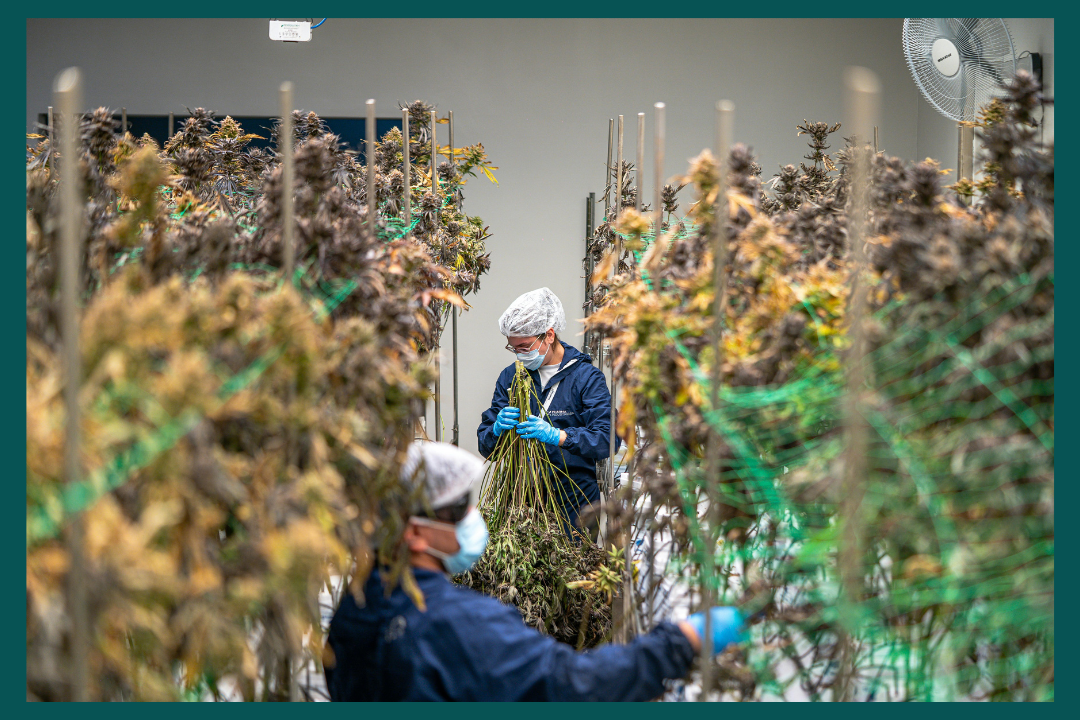Worker Protection Standards in Cannabis Cultivation: Essential Insights for Employee Safety
In the rapidly evolving cannabis industry, protecting workers is as important as producing high-quality products. Cultivation teams regularly handle pesticides and other agricultural chemicals, which brings unique safety and compliance challenges.
To ensure employee safety and regulatory compliance, cannabis operators must understand and implement the EPA’s Worker Protection Standard (WPS) - a federal regulation designed to protect agricultural workers and pesticide handlers from harmful exposure.

What Is the Worker Protection Standard (WPS)?
The Worker Protection Standard (WPS) is an EPA regulation aimed at reducing the risk of pesticide-related illness and injury in agricultural workplaces. It establishes strict requirements for:
- Employee training and safety education
- Posting warning signs in treated areas
- Restricted Entry Intervals (REIs) after pesticide applications
- Access to pesticide labeling and Safety Data Sheets (SDS)
- Availability of decontamination and emergency equipment
In cannabis cultivation where pesticides and pest management products are often used, compliance with WPS is not optional. It’s a fundamental part of a safe and legally compliant operation.
Who Must Comply with WPS?
Any cannabis cultivation facility that uses pesticides or pest control products must comply with WPS. This includes two key groups:
- Pesticide Handlers: Employees who mix, load, apply, or transport pesticides.
- Agricultural Workers: Employees who may enter treated areas and risk incidental exposure through contact with plants, soil, or surfaces.
Both groups require specific training and protection to prevent exposure and ensure a safe workplace.
Training and Education: Building the Foundation of Compliance
Training is at the heart of WPS compliance. Before performing any work that may result in pesticide exposure, employees must complete pesticide safety training. Effective WPS training should cover:
- Pesticide hazards and exposure routes
- Proper use of Personal Protective Equipment (PPE)
- Emergency procedures and first aid
- Restricted Entry Intervals (REIs) and safe re-entry policies
Annual refresher training helps maintain compliance and ensures workers remain informed about evolving pesticide safety practices.
Personal Protective Equipment (PPE): The First Line of Defense
PPE is one of the most critical components of WPS compliance. Pesticide product labels specify the required PPE for safe handling, which may include:
- Gloves and respirators
- Face shields and protective eyewear
- Long-sleeved shirts, pants, and chemical-resistant footwear
Employers are responsible for providing and maintaining all required PPE, training employees in proper usage, and replacing items when damaged or worn.
Decontamination and Emergency Preparedness
Every cannabis cultivation site must provide decontamination supplies and emergency facilities, including:
- Clean water, soap, and single-use towels
- Eyewash stations capable of providing a 15-minute rinse
- Clearly labeled first aid and chemical spill response kits
Operators should understand the difference between plumbed, portable, and supplemental eyewash stations to ensure accessibility in all work areas. Quick and effective response to chemical exposure can significantly reduce injury severity.
Common WPS Violations in Cannabis Operations
Even well-intentioned operators can overlook key compliance steps. The most common WPS violations include:
- Missing or incomplete training documentation
- Workers entering treated areas before REI expiration
- Lack of decontamination stations or eyewash access
- Improper PPE use or maintenance
Regular internal audits and documented program reviews can help identify and correct gaps before they lead to enforcement action.
Best Practices for Maintaining Compliance
Consistency is key to staying compliant. Cultivation facilities can strengthen their WPS programs by:
- Maintaining a centralized compliance binder with training records, pesticide labels, and application logs
- Conducting annual refresher trainings and documenting attendance
- Implementing a new-hire onboarding checklist specific to WPS requirements
- Scheduling routine facility inspections to verify signage, PPE, and decontamination readiness
These proactive measures not only protect your employees but also safeguard your business from costly compliance violations.
Safety and Compliance Go Hand in Hand
Creating a culture of safety in cannabis cultivation starts with understanding and applying the Worker Protection Standard (WPS). By prioritizing training, PPE, and regular program reviews, operators can protect employees, maintain compliance, and strengthen the integrity of their operations.
Resources for WPS training and compliance support are available through the EPA, agricultural extension programs, and local community colleges. For operators seeking expert guidance, fractional compliance consulting can provide the structure and ongoing oversight needed to keep your facility safe and audit-ready.
Want more expert insights? Reach out to ICS Consulting for more information.
ICS Consulting specializes in Compliance based services, such as Start-up Services, Cannabis Operations Activation & Project Management, Operational Readiness Support, CRB Program Audits for Banks and Credit Unions, Regulatory Audits, License Application Support, Technical Writing, Standard Operating Procedures Development, Worker Safety, QMS, OSHA Compliance, Seed-to-Sale Support, Training. For more information on how ICS Consulting Service can help your Cannabis Business, book a 30-minute discovery call and we'll help you map out your next steps to be successful in the Regulated Cannabis Industry.
